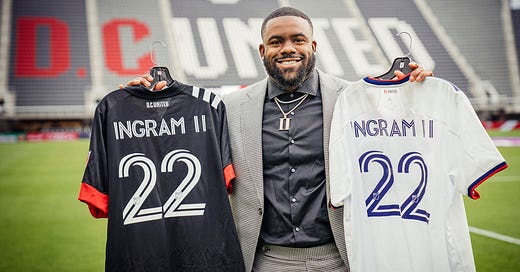Mark Ingram Acquires Equity Stake In D.C. United
Houston Texans running back acquired a 1% ownership stake in D.C. United last week, vaulting the MLS club at $710 million.
Friends,
Mark Ingram played soccer throughout his childhood. He plays FIFA religiously and even attended an Arsenal game in England & the 2014 World Cup in Brazil. Simply put, he loves the sport.
But now, the Houston Texans running back has decided to take his passion for soccer to the next level, officially acquiring a 1% stake in D.C. United last week.…


